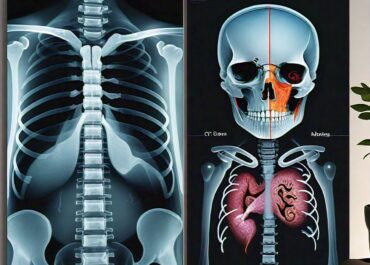
Differences Between Good and Well
The words good and well are commonly used in the English language, and while they are often interchangeable in casual conversation, they have distinct grammatical roles and meanings. Good is primarily an adjective, meaning it describes or modifies a noun. For example, you might say “a good book” or “a good meal,” where “good” describes the quality of the noun (book or meal). On the other hand, well functions as an adverb, meaning it modifies verbs, adjectives, or other adverbs. You might say “She sings well,” where “well” describes how the verb (singing) is being performed.
Understanding the difference between good and well is essential for proper grammar, especially in formal writing and speech. Using “good” when you mean “well,” or vice versa, can lead to misunderstandings or awkward phrasing. While they may seem similar, their roles in sentences are quite different. Let’s explore these words in more depth to understand how and when to use them correctly.
Good Overview
Good as an Adjective
Good is an adjective used to describe the quality of a noun or pronoun. It tells us something about the object, person, or experience. For example, "The weather today is good" describes the quality of the weather, and "He is a good student" refers to the person’s ability or behavior in the context of academics. The key thing to remember is that good modifies a noun, giving more information about its state, quality, or nature.
2. Different Uses of Good
- Describing People: "She is a good teacher." In this sentence, good describes the quality of the teacher. It implies that the teacher is effective, kind, or skilled at their job.
- Describing Objects: "This is a good car." Here, good refers to the condition or performance of the car, suggesting it is reliable or well-made.
- Describing Experiences: "We had a good time." In this context, good describes the quality of the experience, indicating that it was enjoyable or positive.
3. Moral and Ethical Implications of Good
Beyond describing quality, good is often used in the context of morality or ethics. When we say someone is "good," we might be referring to their character or moral standing. For example, "He is a good person" suggests that the individual is kind, honest, or virtuous. In this sense, good is not just about quality but about the ethical behavior of a person or action.
4. Good in Comparative and Superlative Forms
Like many adjectives, good has comparative and superlative forms:
- Better: This is the comparative form of good, used when comparing two things. For example, "This meal is better than the one we had yesterday."
- Best: This is the superlative form of good, used when comparing three or more things. For example, "This is the best book I have ever read."
5. Idiomatic Expressions with Good
The word good is also used in many idiomatic expressions, such as:
- Good to go: Meaning ready or prepared.
- For good: Meaning permanently, as in "He left for good."
- As good as: Used to say something is almost the same as something else, as in "He is as good as finished with his project."
Well Overview
Well as an Adverb
Well is an adverb, which means it modifies verbs, adjectives, or other adverbs. It describes how something is done. For example, in the sentence "She writes well," well describes the manner in which the action (writing) is performed. Well answers the question of "how" when it comes to actions, unlike good, which answers "what kind" when it comes to nouns.
2. Well in Describing Health
One common use of well is to describe someone’s health or condition. When someone asks, "How are you?" the response "I am well" indicates that the person is healthy. It’s a grammatically correct way to respond when referring to physical or mental health. For instance, "After resting, he felt well again."
3. Well in Comparative and Superlative Forms
Similar to good, well also has comparative and superlative forms:
- Better: Used when comparing how two actions are performed, e.g., "She dances better than her sister."
- Best: The superlative form is used when comparing more than two actions or performances, e.g., "He plays the piano best among all the students."
4. Well as an Adjective in Certain Situations
In rare cases, well can function as an adjective, particularly when it refers to someone’s state of health. For example, "He is well now" means that the person has recovered from an illness. This is one of the few exceptions where well functions similarly to an adjective.
5. Idiomatic Expressions with Well
There are several idiomatic expressions that use well, such as:
- Well done: Meaning that something has been completed successfully or satisfactorily.
- Well off: Describes someone who is financially comfortable or wealthy.
- All’s well that ends well: A saying that means a situation that ends happily is all that matters, regardless of how it began or unfolded.
Differences Between Good and Well
- Grammatical Role:
Good is an adjective, while well is an adverb, though it can occasionally function as an adjective when referring to health. - Use with Nouns vs. Verbs:
Good modifies nouns (e.g., "She is a good athlete"), while well modifies verbs (e.g., "She runs well"). - Health Context:
Well is used to describe someone’s health (e.g., "I am well"), whereas good is used to describe someone's character or quality (e.g., "He is a good person"). - Comparative and Superlative Forms:
The comparative of good is better, and the superlative is best. Similarly, well follows the same pattern: better and best. - Moral Quality vs. Performance:
Good often refers to moral or ethical quality (e.g., "He is a good citizen"), while well refers to how well something is done (e.g., "He performed well in the test"). - Formality:
Using well in certain contexts (e.g., "I am well") can sound more formal than using good in casual speech (e.g., "I feel good"). - Idiomatic Use:
Both words have idiomatic expressions, but they are different in meaning and use (e.g., "for good" vs. "well done"). - Response to How vs. What:
Use well when answering "how" questions (e.g., "How did she sing? She sang well"). Use good when answering "what" questions (e.g., "What kind of meal? A good one"). - Referring to Actions vs. States:
Good describes the state or quality of something, whereas well describes the way an action is performed. - Formal Writing:
Well is more commonly used in formal writing when describing actions, while good is used when describing quality or moral character.
Conclusion
Understanding the difference between good and well is crucial for proper grammar and communication. Good is primarily used to describe the quality of a noun, while well is used to describe how an action is performed. Though they may seem similar, they play different grammatical roles and have unique applications. Mastering their correct usage will improve both written and spoken English, ensuring that communication is clear, precise, and professional. Whether referring to performance, quality, or health, knowing when to use good or well is key to effective language use.
FAQs
Related Topics
- All
- Animals
- Diseases
- Health
- Money
- Politics
© 2024 OnYelp.com. All rights reserved. Terms and Conditions | Contact Us | About us





